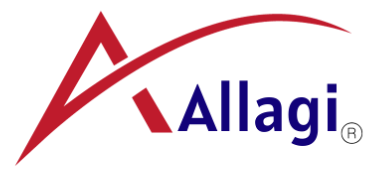Por Fernando Vera, PhD En el vertiginoso panorama universitario actual, la necesidad de cultivar competencias transversales o genéricas, tales como, pensamiento crítico, trabajo en equipo, emprendimiento, sostenibilidad y alfabetización en inteligencia artificial, entre otras, es evidente. Sin embargo, la forma, en que varias universidades chilenas abordan estas competencias, puede determinar su efectividad y aplicabilidad en...Seguir leyendo
Categoría: Soft skills
Nurturing Critical Thinking in the Era of Generative Artificial Intelligence (GAI)
In the rapidly evolving world of education, critical thinking stands as an indispensable skill, especially as technology, notably Generative Artificial Intelligence (GAI), becomes seamlessly integrated into learning. As undergraduates encounter the pervasive influence of GAI, fostering critical thinking is no longer merely advantageous but essential for their academic and professional journey.
Addressing the Skills Gap in College Graduates in Latin America
In recent years, Latin America has witnessed a significant rise in the number of college graduates. While this surge in higher education attainment is undoubtedly a positive development, it has also shed light on a persistent challenge: the skills gap among college graduates. Despite holding degrees, many young professionals in the region lack the necessary...Seguir leyendo
Exploring the Synergy between Active Learning and Constructivism
In the rapidly evolving landscape of higher education, traditional lecture-based instruction is giving way to learner-centered approaches that foster active engagement, critical thinking, and the acquisition of meaningful knowledge. Recognizing the limitations of passive learning, institutions are embracing pedagogical frameworks that empower students to become active participants in their educational journeys. Among these approaches, active...Seguir leyendo
Unleashing the Power of Human Capital: The Importance of Human Capital Theory in Higher Education Programs
By Fernando Vera, PhD In today’s rapidly evolving global economy, higher education plays a vital role in equipping individuals with the knowledge, skills, and competencies necessary to succeed in their professional lives. One influential framework that guides the development of higher education programs is the Human Capital Theory. This theory recognizes that investing in human...Seguir leyendo
The Power of Co-Evaluation: Unveiling the True Potential of Non-Cognitive Skills
In the realm of evaluating skills, traditional assessment methods have predominantly focused on cognitive abilities, such as intelligence and academic achievements. However, recent evidence has shed light on the significance of non-cognitive skills, also known as soft skills or socio-emotional skills. These skills encompass attributes like communication, teamwork, adaptability, and resilience, which play a vital...Seguir leyendo
The Power of Co-Evaluation: Non-Cognitive Skills and Future Performance
In the ever-evolving landscape of education and professional development, the importance of non-cognitive skills, also known as soft skills or socio-emotional skills, has gained significant recognition. These skills encompass a wide range of attributes, including communication, problem-solving, teamwork, adaptability, critical thinking, leadership, and ethical values. Traditionally, the evaluation of these skills has relied heavily on...Seguir leyendo
México: Una excelente opción para la movilidad académica
Por experiencia propia, puedo decir que México es un excelente destino para estudiar. La oferta no sólo es diversa, sino que, en términos económicos, también es muy competitiva. Recordemos que México es actualmente la segunda economía más grande de América Latina. Además, hoy se enfoca más en las exportaciones que en las importaciones. Como sabemos,...Seguir leyendo
¿Por qué los docentes deberían escribir?
Quiero partir esta columna de opinión, con dos docentes imaginarios, que he creado para efectos práticos: Rosita y Miguel, ambos colegas, quienes, por su experiencia, parecen apalancar el cambio transformacional en la educación de pleno siglo XXI. La primera colega, Rosita, enseña en primero y segundo de enseñanza básica, en un colegio de alto rendimiento,...Seguir leyendo
Hábitos y éxito profesional: Lecciones experienciales
En mi carrera profesional, me he planteado muchas metas que, gracias a mi perseverancia, siempre he alcanzado. Estoy seguro de que todo se debe a los buenos hábitos que adquirí desde pequeño y que me he encargado de ir cultivando y mejorando durante toda mi vida. Poco a poco, he aprendido a “conectar los puntos”,...Seguir leyendo
